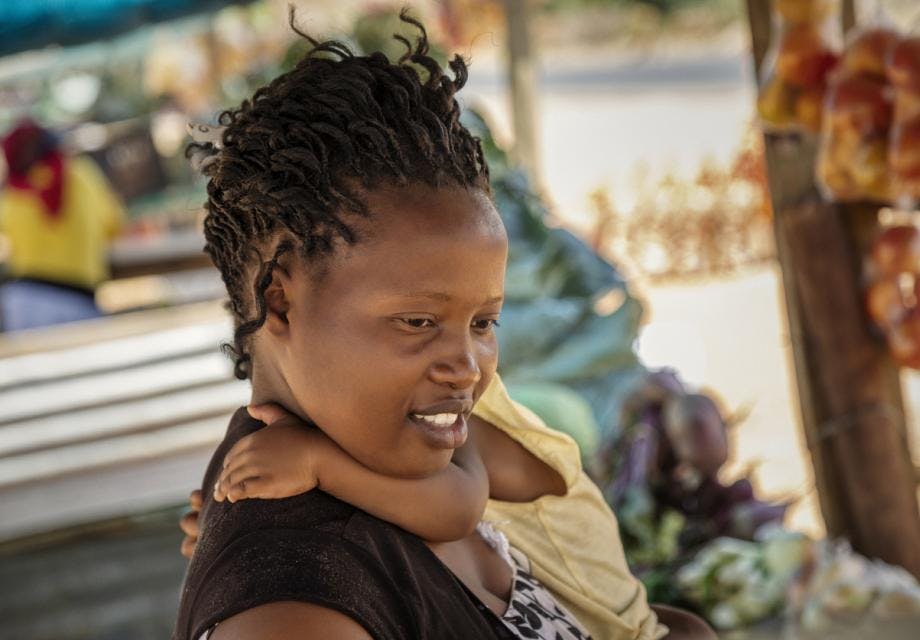Botswana to provide injectable antiretroviral treatment
Hester Philips
16 December 2022
Country will make injectable HIV treatment available from next year
Botswana has approved the use of injectable antiretroviral treatment for people with HIV.
What is this story about?
At the end of November, the Botswanan government announced it will make injectable HIV treatment containing the antiretroviral drugs cabotegravir and rilpivirine available from 2023.
The treatment will come as two separate shots (one containing cabotegravir, the other containing rilpivirine), which will be injected into the buttocks.
A number of high-income countries, such as the USA and UK, began providing injectable HIV treatment in 2021. Botswana will be one of the first non-high-income countries to follow suit. Its decision comes after the Botswana Harvard AIDS Institute conducted successful trials in 2019.
Why is this important?
Botswana has one of the most severe HIV epidemics in the world. HIV prevalence is estimated at 23.8% among women and 13.4% of men. The country is on track to meet the UNAIDS’ 95-95-95 targets. But with more people on antiretroviral treatment (ART) for HIV, finding ways to help people stay on it has become increasingly important.
ART injections are only needed every one or two months, depending on the type of shot. (In Botswana, the injection will be given every two months.) Some people might find this easier to manage than taking a pill every day. Getting an injection might also be less noticeable than taking a daily pill. This is likely to appeal to some people due to HIV-related stigma.
What is going to happen?
The Botswana Medicines Regulatory Authority has already approved the cabotegravir injection. But the rilpivirine injection is still going through the approval process, which is due to happen in 2023.
It is likely the injections will only be available to adults who are already on HIV treatment and virally suppressed, and who have no history of treatment failure or drug resistance.
Injectable HIV treatment should not be confused with injectable PrEP, which prevents people from getting HIV, and is also becoming available in some African countries. In October 2022, Zimbabwe became the first African country to approve injectable PrEP, with South Africa due to follow in 2023.
What does this mean for HIV services?
It is likely that Botswana will only make ART injections available in specialist HIV clinics, at least at first.
It is likely that these clinics will need to make some changes. Specially trained staff and more clinic space will be needed, compared to providing ART tablet refills.
Many eyes will be on Botswana to see how injectable HIV treatment works in reality. As more low- and middle-income countries consider making injectable ART available, it is important to advocate for a wide range of people with HIV to be included in studies that assess the advantages and disadvantages of this new form of HIV treatment.
Get our news and blogs by email
Keep up-to-date with all our latest news stories and blogs by signing up to the Be in the KNOW news digest.
